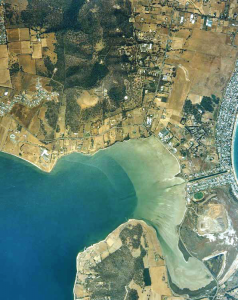Government
 C&R Consulting have vast experience working both with and for all levels of government. Our past work with government has ranged from biodiversity and research projects for the Federal Department of Environment to site evaluations and LGA sized studies for numerous councils and local governments throughout northern Queensland.
C&R Consulting have vast experience working both with and for all levels of government. Our past work with government has ranged from biodiversity and research projects for the Federal Department of Environment to site evaluations and LGA sized studies for numerous councils and local governments throughout northern Queensland.
The main advantage provided by C&R is a knowledge of the inter-relationships between these disciplines, providing a much more comprehensive assessment.
C&R can offer services for:
- Chemistry
- Chemical speciation modelling
- Water quality testing
- Water quality monitoring
- Water chemistry
- Soil chemistry
- Nutrient chemistry (including cycling)
- Groundwater chemistry (including saline water and coal seam aquifers)
- Mineral chemistry
- Forensic chemistry
- Chemical modelling and contaminant fate transport
- Ecology
- Terrestrial and aquatic biodiversity surveys
- Ecotoxicological Assessments
- Direct Toxicity Assessments
- Baseline Aquatic Fauna Assessments
- Electofishing surveys
- Relocation of aquatic species
- Identification of flora species
- Collection and relocation of ecologically important plants
- Specialist advice on aftercare of rehabilitated flora
- Mapping of regional ecosystems
- Advice on selecting flora species for revegetation specific areas, based on knowledge of climate and soil conditions
- Environmental legislation and compliance
- Peer-review and gaps analyses of existing reports by other agencies
- Bushfire Hazard Studies
- Practical application and interpretation of legislation to real-world scenarios
- Flood mapping and mitigation strategies
- Stormwater management
- Preservation of key species, habitats and riparian areas
- Promotion of sustainable development practices
- Geology, Geochemistry & Hydrogeology
- CSG and UCG advisory work
- Groundwater resource appraisals
- Quality of groundwater and related impacts
- Hydrology
- Rainfall and flood modelling
- Geomorphological and Flood Assessment
- Beach Erosion
- WSUD: Water quality improvement by the use of artificial wetlands and lakes and the hurdles associated with the application of these principles
- Soils
- Soil subsidence
- Erosion mitigation measures
- Treatment methods for sodic, dispersive and erosive soils
- Soil contamination investigations in urban and rural areas
- Rehabilitation projects for contaminated sites
